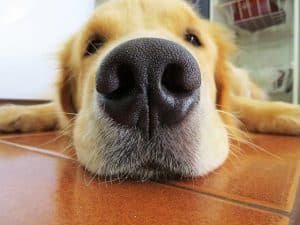Remember Lenny, the farting cat? Back in 2014, Lenny, a stray cat, was rescued and nursed back to health by the Scottsville Veterinary Hospital and Pet Adoptions in Washington. A family adopted him but returned him two days later claiming that he “farts all the time”! They suggested that maybe he would be best suited for an outdoor life. The staff, however, did not experience the farting episodes but went on ahead and named him “smelly cat”. The story has a happy ending because Lenny did find a new home eventually after a viral post that made him a celebrity.
Have you ever wondered whether cats fart? Am sure you have seen the videos of people claiming that their cats fart loudly (video 1, video 2). All am going to say is, FAKE NEWS! Yeah, they do fart, but the farts are silent. All mammals fart or pass gas. It’s a normal process where bacteria in the stomach break down whatever they have consumed. Flatulence is how the cat gets rid of waste. If the flatulence becomes frequent or the feline becomes uncomfortable, then there could be a health issue.

Contents
What causes cats to fart?
Some common causes are:
Poor quality food
Most flatulence in cats is diet related. Poor, and cheap food quality will contain indigestible fillers that cause flatulence. Switch to a high-quality diet.
If the food is of high quality, they may have an intolerance to one of the ingredients in the foods. Milk is one of the common intolerances. There are many foods that are good for humans but harmful or poisonous to cats.
Food containing high fiber also makes cats gassy.
Ingesting dairy
Most breeds are lactose intolerant and this can cause excessive gas. If you have to give it milk, give it “cat milk” which is available in most pet stores and supermarkets.
Eating spoiled food or garbage
Do not feed the cat food that has expired. It is also recommended not to give them scraps from your table. If you must, feed them bland types like plain chicken. Do not give it food with spices or cured foods.
Eating too fast and in the process swallowing excessive air
Although they rarely eat fast, if there are other cats, then they may want to compete when eating, leading to the swallowing of excessive gas. You can prevent this by having a dish for every each and keeping them at different locations. The excessive air when swallowed causes flatulence.
A sudden change of diet
Gradually change your cat’s diet over a few days. Do not rapidly change it. Mix the old food with the new food in percentages and gradually go increasing the percentage of the new food.
Malabsorption
This is a condition where the cat’s digestive tract has a deficiency resulting in poor digestion. Exocrine pancreatic deficiency (the inability to digest food due to lack of digestive enzymes from the pancreas) can cause this or the inflammatory bowel disease (a syndrome caused by a reaction to a chronic irritation in the intestines or stomach.)
Parasites
This includes worms and giardia. They are common causes of flatulence. The single-celled protozoan known as giardia causes stomach upsets that can get very severe. It also causes flatulence and diarrhea that is foul smelling.
Parasitic worms may not show any symptoms unless they are too many, but they do cause flatulence.
When should you get worried about your cat farts?
If your kitten farts are accompanied by these symptoms see a vet immediately.
- Diarrhea
- Vomiting
- Loud tummy rumbling
- Excessive gas
- Bloating
- Abdominal pain when tummy is touched
- Drooling excessively
- Stools that are bloody
- Decreased appetite
- Scooting themselves along the floor.
For diagnosis, the vet will require its medical history. This will include their nutrition, diet, and symptoms it has been showing. If the cause isn’t dietary, then he can perform other tests that include:
- Blood tests to examine its overall health
- Fecal tests to eliminate giardia or worms
- A Feline trypsin-Like immunoreactivity (fTLI) test that measures the trypsin-like protein concentration in serum.
- A Fecal proteolytic activity test where the vet examines the cat’s feces for fecal trypsin and fecal fat.
- A biopsy or histopathology on the intestinal tract to check for inflammatory bowel disease.
How to prevent and treat excessive farting
- Change from high-fiber diet to low-fiber diet for easy digestion. Foods such as Blue Buffalo Sensitive Stomach Natural Adult Dry Cat Food, Purina ONE Sensitive Systems Adult Dry Cat Food, Lucy Pet Formulas for Life - Sensitive Stomach & Skin, among others may help resolve farting and other gastrointestinal problems.
- Do not give your cat milk. Their digestive tract does not digest the milk properly. To keep the cat hydrated, offer water.
- If your cat feeds quickly, give it small amounts frequently. Feed each in separate bowls and in separate areas to avoid one circling other kitties for their food.
- Tightly close your trash bins/ bags so that it does not feed on garbage or spoiled food.
- Encourage play and exercise in your cats.
- Deworm your cat regularly to make sure he is parasite free always.
- In case of giardia, the vet will prescribe antibiotics and other medication to treat worm infestations.
After this, the feline will be doing its thing silently since the amount of gas it should normally produce is small. When they release gas, the internal pressure in their gastrointestinal system is low, so the gas comes out steady and slow. Their muscles don’t close up tight like those of humans, so there will be no sound (or it will be barely audible). In fact, they are very relaxed when they pass gas and it’s not embarrassing for them.
References
- https://goo.gl/HJggSB
- https://goo.gl/Y5icKo
- https://goo.gl/zUX6S5





Leave a Reply
You must be logged in to post a comment.